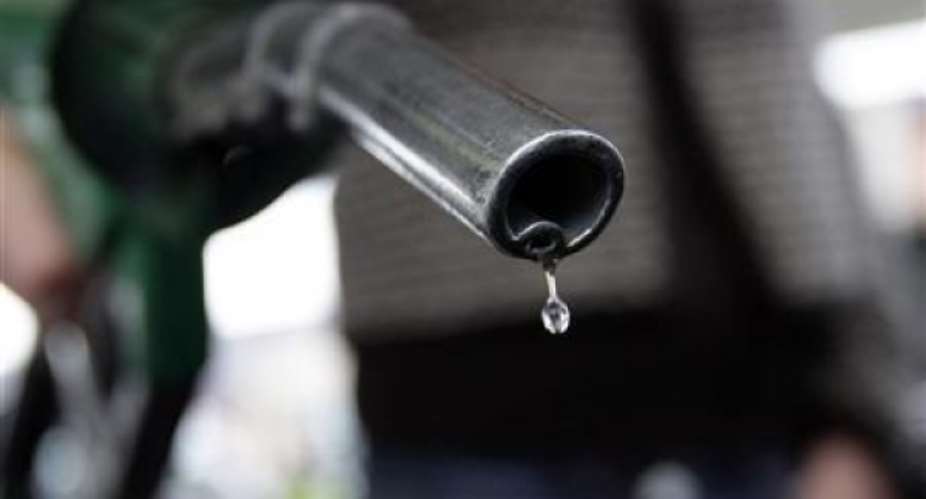Following the unannounced surge in fuel prices in Ghana, the Institute of Energy Security (IES), has called on government review taxes and other levies on petroleum products to make them a bit cheaper for Ghanaians.
Currently, data from the National Petroleum Authority shows that there are about 10 different kinds of taxes and levies on petroleum products.
Speaking on the Citi Breakfast show, a principal research analyst at IES, Richmond Rockson argued that the adverse effect of the increment in fuel prices on consumers could be minimal if government scraps some of the taxes.
“The first that should go is the special petroleum tax. I don't think that there is any need for government to impose 15 percent there. There is no point in that. Some of them can also be reviewed; I don't see why the road fund should be 40 pesewas, it's too much. The price stabilization and recovery levy must also go, especially when government is passing the cost on to consumers. There is no point keeping that in there as well,” he added.
Current figures from some filling stations show that, prices of petrol and diesel have hit an all-time high, with petrol selling at an average of GHc4.29 at the pumps, and diesel going for an average of GHc4.23 per litre.
Mr. Rockson attributed the increment on the surge in crude prices at the international market as well as the depreciation of the Ghanaian currency – the cedi.
“When it comes to fuel pricing we know that there are a number of indicators that we all look at – one of the critical things that we look out for is our cedi, thus the exchange rate as compared to the dollar. Over the period the cedi has been depreciating marginally and from May till date – ten consecutive windows—it's only one [window] that we had a stable currency. In all the other nine the cedi depreciated and we've been mentioning this every time. As we speak the average exchange rate is 4.48 pesewes from a previous average of 4.44 pesewes and this is really troubling because the effect it has on fuel pricing is that it's going to push prices up instead of pushing it down.”
He said “crude oil prices have also surged” adding that “as we speak we are doing about 55 dollars from a previous average of 52 dollars per barrel, a depreciation of about 3%.”
“For a benchmark for finished products for gasoline and gas oil, they've also gone up, in this particular window they went up by 14% for gasoline and for gas oil it went up by 8%. This is what has accounted for the increment in this month [September],” Mr. Rockson explained.
–
By: Godwin Akweiteh Allotey/citifmonline.com/Ghana
Follow @AlloteyGodwin





 2024 elections: Resign if you can't be faithful to party - Sagnarigu NDC PC desc...
2024 elections: Resign if you can't be faithful to party - Sagnarigu NDC PC desc...
 Five arrested, remanded over alleged murder of two police officers at Transacco
Five arrested, remanded over alleged murder of two police officers at Transacco
 Tax exemptions better than incentives for churches – Tax Analyst tell Bawumia
Tax exemptions better than incentives for churches – Tax Analyst tell Bawumia
 Transport Minister sues Law Platform Editor for defamation
Transport Minister sues Law Platform Editor for defamation
 Voter registration: Police arrest NPP Treasurer for Mpohor for registering minor
Voter registration: Police arrest NPP Treasurer for Mpohor for registering minor
 "This nonsense must stop" — Lawrence Tetteh vows to march to Jubilee House over ...
"This nonsense must stop" — Lawrence Tetteh vows to march to Jubilee House over ...
 2024 elections: “If indeed you stand for peaceful elections the time is now for ...
2024 elections: “If indeed you stand for peaceful elections the time is now for ...
 I have the attributes to be president of this country — Bernard Monarh
I have the attributes to be president of this country — Bernard Monarh
 Cecilia Dapaah saga: ‘Turf war’ between AG, EOCO, OSP indicates they’re not ‘cor...
Cecilia Dapaah saga: ‘Turf war’ between AG, EOCO, OSP indicates they’re not ‘cor...
 Ghana will become the first African country to embrace blockchain-powered gover...
Ghana will become the first African country to embrace blockchain-powered gover...
